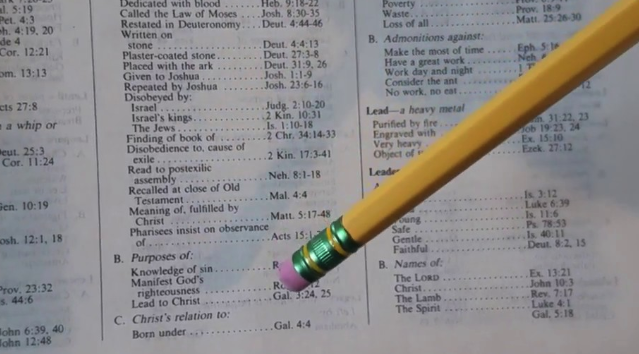Bible Prophecy Under the Microscope: Episode 11
Gary gives a quick lesson on how to do biblical hermeneutics, which simply means how to interpret the text.
Many people grow up thinking the Bible says one thing when it actually says something else. For example, when asked who cut off Samson’s hair, a high percentage of people will say “Delilah!” By reading Judges 16:19, we quickly learn that she “called for a man and had him shave off the seven locks of his hair.” If you were to ask someone who is familiar with the Bible what animal will lie down with the lamb, most likely he or she will say “the lion.” Isaiah 11:6 says that it’s the wolf that will dwell with the lamb (also see 65:25).
Before we can know what a passage means, we must first determine what it says. We are not permitted to add words and ideas to the Bible that aren’t there (Rev. 22:18–19). Here’s what one prophecy writer claims: “Jesus said the last generation would witness unprecedented increases in earthquakes, famines, wars and pestilences.”
First, nothing is said about a “last generation.” Jesus says “this generation.” If we take the view that “you” does not mean them, and “this” does not refer to their generation, then how would Jesus have said it if He meant them and their generation if “you” does not mean them and “this generation” does not mean their generation?
Second, this is what Jesus actually told His first-century audience: “Nation will rise against nation and kingdom against kingdom, and there will be great earthquakes, and in various places plagues and famines; and there will be terrors and great signs from heaven” (Luke 21:11). There is no mention of the number, magnitude, or increase of earthquakes. He only states that there will be “great earthquakes” before that first-century generation passes away. Records of earthquakes go back thousands of years (e.g., Amos 1:1; Zech. 14:5), and they were a part of Israel’s history in the first century leading up to the destruction of Jerusalem in AD 70. Even great earthquakes!

A Beginner's Guide to Interpreting Bible Prophecy
With so much prophetic material in the Bible — somewhere around 25% of the total makeup of Scripture — it seems difficult to argue that an expert is needed to understand such a large portion of God’s Word and so many “experts” could be wrong generation after generation. If God’s Word is a lamp to our feet and a light to our path” (Psalm 119:105), how do we explain that not a lot of light has been shed on God’s prophetic Word and with so little accuracy? A Beginner’s Guide to Interpreting Bible Prophecy has been designed to help Christians of all ages and levels of experience to study Bible prophecy with confidence.
Buy NowGary gives a quick lesson on how to do biblical hermeneutics, which simply means how to interpret the text. Most Christians are never taught how to read the Bible for themselves or how to use basic Bible tools. This is unfortunate and usually means Christians must depend on others to tell them what the Bible means.
Click here for today’s episode
Click here for a supplemental FREE PDF
Click here for all episodes of Bible Prophecy Under the Microscope

